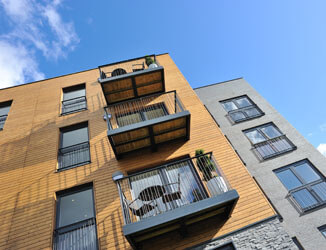England needs to build an extra three million social homes to curb the housing crisis, a new report commissioned by housing charity Shelter has concluded.
The construction of an extra 3.1 million homes over a 20-year period was one of the key suggestions of a panel of 16 individuals, including Grenfell fire survivor Edward Daffarn, former Labour Party leader Ed Miliband and Conservative peer Baroness Warsi. The commission was chaired by Goldman Sachs economist Jim O’Neill.
It argued that moving tenants from costly private rental homes to social housing could help pay for the major investment involved, as the reduction in rents would save £11 billion in housing benefit each year. According to Capital Economics, these revenues would ensure the investment paid for itself over a 40-year period.
The report argued this would be a better use of taxpayers’ money than schemes such as Help to Buy.
Just to house those in greatest need – such as the homeless and those with a disability – will require 1.3 million new homes, the report said. It also warned that 1.2 million young people and 700,000 older people could end up trapped in expensive private rent for life without a major building programme. The present lack of social housing has led to a “drop in the numbers of young families moving into ownership, the rise of pensioners in insecure unaffordable private rentals, and the homelessness that scars our society”.
Shelter proposed that 1.2 million of the new homes be made available for young families for whom buying a home is too expensive and who otherwise “face a lifetime in expensive and insecure private renting”.
The proposals were drawn up after a process Shelter called the ‘Big Conversation’, for which the Grenfell Tower disaster was a catalyst. Around 31,000 people took part in this, while 20 different organisations submitted evidence, ranging from the Local Government Association to the mental health charity Mind. In addition, 13 public debates were held on the issue across the country.
It claimed that the last 40 years of housing policy have been a failure, with 126,000 social homes a year on average being built from the end of the Second World War to 1980. In 2017, however, the total was only 6,463.
Moreover, this has been part of an overall shortfall in building. The increase in house prices has outstripped the rate of new building every year since 2001. The only other time since the 1920s that was true was during the Second World War.
Baroness Warsi said: “Social mobility has been decimated by decades of political failure to address our worsening housing crisis. Half our young people cannot buy and thousands face the horror of homelessness. Our vision for social housing presents a vital opportunity to reverse this decay. We simply cannot afford not to act.”
Mr Miliband commented that building more social housing can “restore hope, build strong communities and fix the broken housing market”.
The plan is certainly a long-term one, but in a week in which the government has announced a ten-year model for the NHS, it may be such proposals could help persuade policymakers that the best response to Grenfell and the general stigma over social housing is to reverse the trend for low building levels through a comprehensive national strategy.



